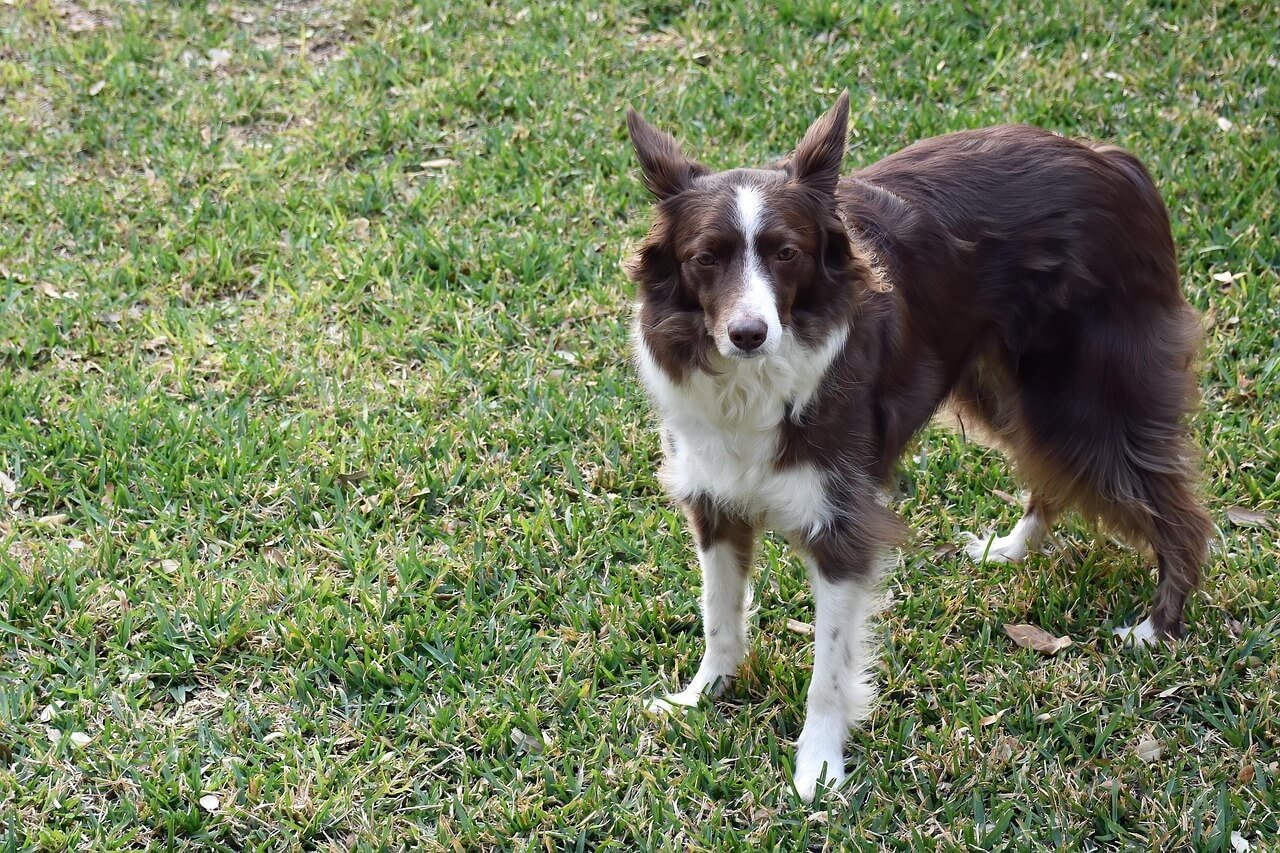Understanding Dog Swollen Eye Home Treatment
A swollen eye in dogs can be alarming for pet owners, but it’s not uncommon. Whether caused by an injury, infection, or allergic reaction, a swollen eye requires prompt attention to prevent further complications. While veterinary care is always the best course of action, there are safe and effective home treatments you can try to alleviate your dog’s discomfort temporarily. In this blog post, we’ll explore the potential causes of a swollen eye, steps you can take at home to help your furry friend, and when it’s time to seek professional help. With the right knowledge and care, you can ensure your dog’s eyes stay healthy and bright.
Common Causes of Swollen Eyes in Dogs
A swollen eye can result from a variety of issues, ranging from minor irritations to serious medical conditions. Here are some common causes:
Allergic Reactions : Environmental allergens like pollen or food sensitivities can cause swelling around the eyes.
Infections : Bacterial or viral infections may lead to inflammation and discharge from the eye.
Injuries : Scratches, foreign objects, or trauma to the eye can cause swelling and discomfort.
Conjunctivitis : Also known as “pink eye,” this condition causes redness, swelling, and irritation.
Glaucoma : Increased pressure in the eye can lead to swelling and requires immediate veterinary attention.
Understanding the underlying cause is essential for determining the appropriate treatment and ensuring your dog gets the care they need.
Safe Home Treatments for Dog Swollen Eye
If your dog’s swollen eye isn’t severe, you can try these safe home treatments to provide relief:
Warm Compress : Gently apply a clean, warm cloth to the affected area for 5-10 minutes to reduce swelling.
Saline Solution : Use a sterile saline solution to rinse the eye and remove any debris or irritants.
Antihistamines : For allergic reactions, consult your vet about administering a dog-safe antihistamine like Benadryl.
Cold Compress : A cool compress can help reduce inflammation and soothe irritation.
Keep the Area Clean : Wipe away any discharge with a damp cloth to prevent further irritation.
While these treatments can provide temporary relief, they should not replace professional veterinary care if the issue persists or worsens.
Check this guide 👉Understanding Dog Eye Allergies: Best 7 Health Tips!
Check this guide 👉Understanding Dog Eye Bleeding: Best 7 Health Tips!
Check this guide 👉Understanding Dog Eye Cysts: Best 7 Health Tips!

Home Remedies for Swollen Eyes | When to See a Vet Immediately |
|---|---|
Warm compress for mild swelling | Severe swelling or bulging of the eye |
Saline rinse for debris removal | Discharge with pus or blood |
Antihistamines for allergies | Cloudy or discolored eye appearance |
Cold compress for inflammation | Signs of pain or inability to open the eye |
Keeping the area clean and dry | Swelling accompanied by fever or lethargy |
Preventive Measures to Avoid Swollen Eyes
Preventing swollen eyes in dogs involves proactive care and attention to their environment. Here are some tips to keep your dog’s eyes healthy:
Regular Cleaning : Wipe your dog’s eyes regularly with a damp cloth to remove dirt and debris.
Trim Facial Hair : For long-haired breeds, trimming hair around the eyes can prevent irritation.
Avoid Allergens : Identify and minimize exposure to environmental or food allergens that trigger reactions.
Supervise Playtime : Ensure your dog doesn’t engage in rough play that could lead to eye injuries.
Routine Checkups : Schedule regular vet visits to monitor your dog’s eye health and catch issues early.
By taking these preventive measures, you can reduce the risk of your dog developing swollen eyes and ensure their long-term comfort.
Signs That Indicate a Serious Problem
Not all cases of swollen eyes can be treated at home. Here are signs that indicate a more serious issue requiring immediate veterinary attention:
Excessive Discharge : Yellow or green discharge may signal an infection that needs antibiotics.
Cloudiness or Redness : Changes in the appearance of the eye could indicate glaucoma or corneal ulcers.
Behavioral Changes : If your dog seems unusually lethargic or refuses to eat, it could point to systemic issues.
Pawing at the Eye : Persistent pawing or rubbing suggests significant discomfort or pain.
Swelling That Doesn’t Improve : If the swelling worsens or doesn’t respond to home care, it’s time to see a vet.
Recognizing these warning signs ensures your dog receives timely treatment and avoids complications.
Foods That Can Irritate a Dog’s Eyes
Certain foods can trigger allergic reactions or irritation that may lead to swollen eyes in dogs. Here’s what to watch out for:
Dairy Products : Many dogs are lactose intolerant, and dairy consumption can cause inflammation, including around the eyes.
Processed Meats : High-sodium or preservative-laden meats can trigger allergic responses in sensitive dogs.
Grains : Wheat, corn, and soy are common allergens that may cause eye swelling in some dogs.
Artificial Additives : Food dyes and preservatives can irritate your dog’s system and lead to visible symptoms like eye swelling.
Chocolate : Not only toxic to dogs, chocolate can also cause systemic reactions that may affect the eyes.
Avoiding these foods can help prevent dietary-related eye issues and keep your dog’s eyes clear and healthy.
How to Create a Safe Environment for Your Dog’s Eye Health
Your dog’s environment plays a crucial role in preventing eye injuries and swelling. Here are steps to create a safer space:
Remove Sharp Objects : Keep items like sticks, toys with sharp edges, or furniture corners away from your dog’s play area.
Secure Cleaning Supplies : Store chemicals and cleaning products out of reach to avoid accidental exposure.
Minimize Dust and Pollen : Use air purifiers and clean regularly to reduce airborne irritants that can affect your dog’s eyes.
Supervise Outdoor Time : Watch your dog closely during walks or outdoor play to prevent encounters with thorny plants or debris.
Use Protective Gear : Consider dog goggles (doggles) if your dog frequently explores areas with dust, sand, or strong winds.
By taking these precautions, you can minimize the risk of environmental factors causing eye problems for your dog.
When to Revisit Home Treatment for Swollen Eyes
If home treatments don’t seem to work or the condition worsens, it’s important to reassess your approach. Here’s what to consider:
Reevaluate the Cause : Double-check for potential triggers like allergies, infections, or foreign objects that may have been missed.
Adjust the Treatment : If one remedy isn’t effective, try another, such as switching from a warm compress to a cold one.
Monitor Progress Closely : Keep a log of changes in swelling, discharge, or behavior to share with your vet.
Limit Over-the-Counter Remedies : Avoid overusing medications or treatments without professional guidance.
Seek Timely Help : If symptoms persist for more than 24-48 hours despite home care, schedule a vet visit immediately.
Reassessing your approach ensures you’re providing the best possible care while avoiding delays in seeking professional help when needed.
Frequently Asked Questions About Dog Swollen Eye Home Treatment
Can I use human eye drops for my dog’s swollen eye?
No, human eye drops may contain ingredients harmful to dogs. Always consult your vet before using any medication.
How long does it take for a swollen eye to heal?
Mild cases may resolve within a day or two with proper care, but persistent swelling requires veterinary evaluation.
What should I do if my dog’s eye is bleeding?
Seek immediate veterinary care, as bleeding could indicate a serious injury or condition.
Can allergies cause a swollen eye?
Yes, allergies are a common cause of eye swelling in dogs and can often be managed with antihistamines.
Is it safe to use a cold compress on my dog’s eye?
Yes, a cold compress can reduce swelling, but ensure it’s not too cold and wrapped in a clean cloth.
Keeping Your Dog’s Eyes Healthy
A swollen eye can be uncomfortable and concerning for both you and your dog, but with the right approach, you can address the issue effectively. By understanding the causes, trying safe home treatments, and knowing when to seek veterinary care, you can ensure your dog’s eyes remain healthy and free from irritation. Remember, prevention is key—regular cleaning, avoiding allergens, and supervising playtime can go a long way in protecting your dog’s vision. Your furry friend relies on you to advocate for their well-being, so stay attentive and proactive. With love and care, you can keep those puppy-dog eyes sparkling for years to come.
Understanding Scabs in Dogs Ears: Best 7 Tips! Learn how to identify, treat, and prevent scabs in your dog’s ears for optimal ear health.
Is Cinnamon Bad for Dogs? Best 7 Health Tips! Discover safe ways to use cinnamon, risks to avoid, and expert advice to keep your dog healthy.
Can Dogs Get Pneumonia from Humans? Best 7 Tips! Learn how to protect your dog, understand transmission risks, and ensure their respiratory health.
Can Dog Urine Make You Sick? Best 7 Health Tips! Learn how to stay safe, prevent illness, and handle exposure to dog urine effectively.





